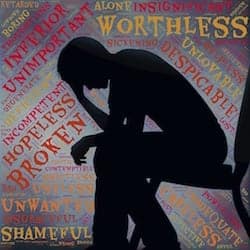Table of Contents
Who’s to blame? Well… I am.by Steve Clark
This is in response to a recent (May 12, 2018) article in the New York Times by Anemona Hartocollis, His College Knew of His Despair. His Parents Didn’t, Until It Was Too Late. It is a story of a college sophomore who took his own life, an institution that might have prevented it, and a mother’s grieving quest for answers. Student suicide is an issue related to parenting, educational institutions, expectations, dead ends, mental health, fears of failure, and trusting someone else to save the day.
Who Will Answer the Call?
 We live in a time when our nation has a great need for its people to stand up and take action. Whether it is children in cages, children shooting other children, children being stolen and sold, or children taking their own lives, we are surrounded by the outcry to do something. Children in need call out. They cry out like someone dialing 911, until they no longer have hope their call will be answered. Then they just suffer in silence… alone.
We live in a time when our nation has a great need for its people to stand up and take action. Whether it is children in cages, children shooting other children, children being stolen and sold, or children taking their own lives, we are surrounded by the outcry to do something. Children in need call out. They cry out like someone dialing 911, until they no longer have hope their call will be answered. Then they just suffer in silence… alone.
Five-year-olds don’t commit suicide. They don’t show up at school with rounds of ammunition ready to kill. When they are troubled, scared, discouraged, alone… they call out… in tears. But, according to an aggregate of many sources, approximately 20 percent of our “threshold” kids (those (ages 15-24) who are facing the launch point of their lives) strongly consider suicide as a credible option. Somewhere along the way they stopped crying out and began contemplating an exit. Why?
The article asks us to face the quandary of blame. Did the college fail him? Did someone fail to reach out a hand to the student who was drowning? Did the parents do something to create in him a reluctance to call home? Should colleges post lifeguards to save those who are not ready for deep waters? As I see it, the solution is not found in waiting to see who cannot swim, but in ensuring they are good swimmers before the waters get deep.
Schools are supposed to create readiness; readiness for college, readiness for life. But so too are parents. So, with all these teachers and parents ready to help them learn how to swim, why do a fifth who are facing the plunge into adult life strongly consider ending their lives entirely? Why would one out of every five of a fleet’s captains consider sinking their ships before they left the harbor? A teacher looks out at her class of thirty students and knows that six of them will think death is a viable option over growing up. How is that acceptable?
Are Parents Equipped to Raise Their Kids?
Any parent who has lost a child to suicide bears an unfathomable burden. They will forever wonder what they did wrong, how they failed, and what signs they missed. My question is – who prepared the parents to prepare the child? It takes a village to raise a child, and our nation is nothing more than a very large village. What has the village done to improve its parents’ chances of success?
 The mother in the article wants to blame the college for not rescuing her son, and for not calling her to dash to his rescue. But it’s not entirely the college’s fault, is it? Maybe his high school failed to prepare him. Maybe his elementary or middle school teachers missed something. But, those accusations will fall flat and fade, and the one person the mother will forever blame the most will be herself. My question is, what did his schools do to help her know she did a good job raising him?
The mother in the article wants to blame the college for not rescuing her son, and for not calling her to dash to his rescue. But it’s not entirely the college’s fault, is it? Maybe his high school failed to prepare him. Maybe his elementary or middle school teachers missed something. But, those accusations will fall flat and fade, and the one person the mother will forever blame the most will be herself. My question is, what did his schools do to help her know she did a good job raising him?
And, in all honesty, when I take a long look in the mirror, I know that I too am to blame. I did not do enough to challenge and change the way our schools enable parents. Ever since my oldest entered Kindergarten and I realized I would never again know his mind as well as before, I knew I was supposed to trust the schools to do the heavy lifting of preparing him to face life’s challenges. It was almost as if they said, “Thank you, Mr. Clark. We’ll take it from here.” And I let them because I trusted them implicitly.
Institutional Power vs. Individual Influence
As a nation, we must maintain a balance between how much we trust the power of our institutions and how much we influence what those institutions are. We want our police to enforce the laws, but to do so fairly and humanely. We want our borders to protect us, but we want those in greatest need to be saved. We want our government to serve the greater good. And we want our schools to go above and beyond to enable our children to prosper. But we must also take a hand. We must be ready to question, contribute, serve, teach, provide, and take a stand… not for ourselves, but for the good of our children’s future lives. And if they are so willing to abandon those lives, then we have all failed them.
 Our nation’s teachers are amazing people… heroic people. They are dedicated, highly trained, well-intentioned, and over-worked people. They are not the cause of this. They have been asked to carry too much of the load. They are expected to have all the answers for every child’s deepest need. We have entrusted them with too heavy a burden, and expect them to do more than any human can achieve. Valiantly, they have not shirked the job, and I imagine they lay awake at night wrestling with how to do more. They are not to blame.
Our nation’s teachers are amazing people… heroic people. They are dedicated, highly trained, well-intentioned, and over-worked people. They are not the cause of this. They have been asked to carry too much of the load. They are expected to have all the answers for every child’s deepest need. We have entrusted them with too heavy a burden, and expect them to do more than any human can achieve. Valiantly, they have not shirked the job, and I imagine they lay awake at night wrestling with how to do more. They are not to blame.
Who’s to blame for this? Well, …I am.
Just like you, I too am a member of this village of 300 million. I have a voice, a vote, and a say. I can influence the future. I can move a few shovelfuls of the mountain. I just haven’t done enough, yet.
Unity Moves Mountains
What if enough of us were to join together? What if we were to unify our efforts? What if those on the outside and those on the inside of our schools joined together to change things? What if we found better ways to prepare parents to prepare their children? What if we truly enabled parents to be education’s partners at home? Not to teach curricula, but to teach life skills, character, humor, optimism, exploration of interests, passion mining, grit, and… unity of effort. What if we taught parents to help children learn that our identities are not defined by our failures, but by how we rejoin the battle? What if we empowered veteran parents to mentor young parents? Might we then reduce the number of drowning children?
 Must we continue to ignore that the way parents and children experience their transition into the widening gap caused by Kindergarten is a cognitive parallel for the way they will experience a child’s exit across the chasm to college? Can’t we at least prepare parents to be better guides for their child’s departures into separation? Can’t we try things and learn? Can’t the village come together for the sake of the children? Isn’t it worth changing, not only the minds of those who would end their own existence, but also the minds who would even peer into such darkness? If we could at least agree to try, we could then begin to move the mountain a few inches. Maybe then we could all sleep better at night, no longer haunted by the anguish of wondering what more we could have done.
Must we continue to ignore that the way parents and children experience their transition into the widening gap caused by Kindergarten is a cognitive parallel for the way they will experience a child’s exit across the chasm to college? Can’t we at least prepare parents to be better guides for their child’s departures into separation? Can’t we try things and learn? Can’t the village come together for the sake of the children? Isn’t it worth changing, not only the minds of those who would end their own existence, but also the minds who would even peer into such darkness? If we could at least agree to try, we could then begin to move the mountain a few inches. Maybe then we could all sleep better at night, no longer haunted by the anguish of wondering what more we could have done.
Author
 Steve Clark has more than eighteen years of experience as a highly-engaged parent of students in public schools. He is founder and president of Leading to Your Success, an organizational learning and technology consultancy, and in 2017 launched its subsidiary, Parent Engagement Solutions. You can follow Steve Clark on Twitter.
Steve Clark has more than eighteen years of experience as a highly-engaged parent of students in public schools. He is founder and president of Leading to Your Success, an organizational learning and technology consultancy, and in 2017 launched its subsidiary, Parent Engagement Solutions. You can follow Steve Clark on Twitter.
Further Reading
- Psychology Today – “One Reason Why” Parents Should Worry About Teen Suicide
- CBS News – Teen Suicide: 15 warning signs to watch for
- USA Today – Teen Suicide is Soaring





